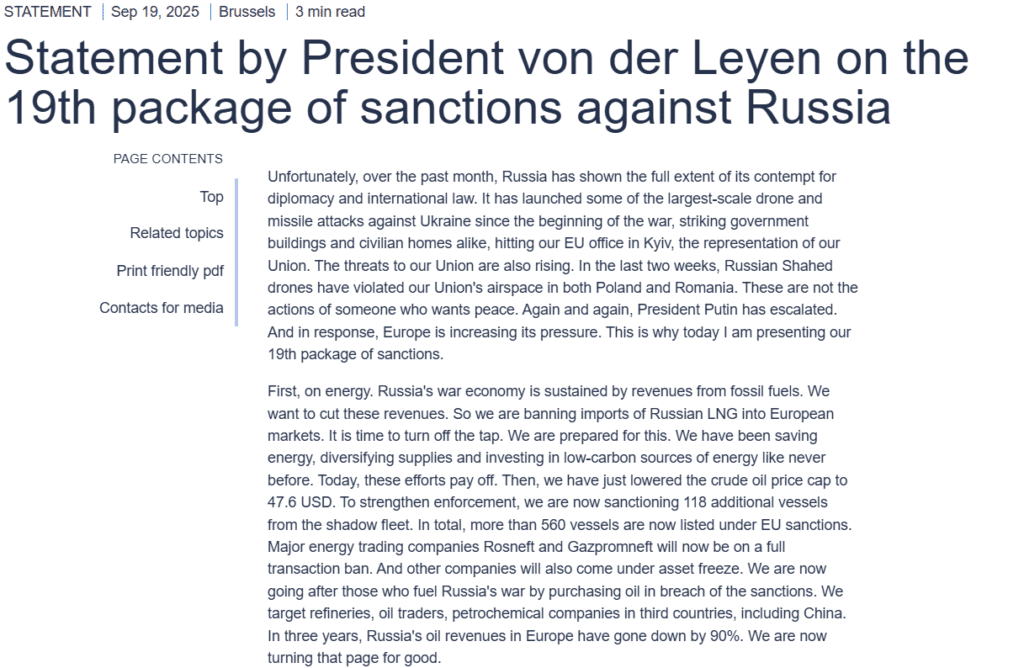The European Union will incorporate cryptocurrency platforms in its new financial sanctions targeting Russia, marking the first instance of digital asset services being specifically addressed.
The actions, part of the bloc’s 19th sanctions package, forbid all cryptocurrency transactions for Russian residents and limit interactions with foreign banks associated with Russia’s alternative payment systems, according to a statement issued by European Commission President Ursula von der Leyen on Friday.
The package further aims to obstruct transactions involving entities situated in Russian special economic zones.
“As evasion tactics become more advanced, our sanctions will evolve to remain proactive,” von der Leyen stated. “This is the first time our restrictive measures will target crypto platforms and forbid cryptocurrency transactions.”
She continued, “We are identifying foreign banks linked to Russian alternative payment systems and limiting transactions with entities in special economic zones.”
The sanctions are not finalized and need approval from all 27 EU member states.
Related: Privacy is a ‘constant battle’ among blockchain stakeholders and authorities
Von der Leyen remarked that the measures are a response to Russia’s “largest-scale drone and missile assaults against Ukraine,” which have also resulted in Shahed drones breaching EU airspace in Poland and Romania.
Reports indicate that Russian oil firms have utilized digital assets to bypass sanctions, executing tens of millions of dollars in monthly transactions via Bitcoin (BTC) and Tether’s USDt (USDT), as per a Reuters report released in March, citing four sources familiar with the situation.
In July, the US Department of Justice charged Iurii Gugnin, also known as George Goognin and Iurii Mashukov, a Russian national living in New York, with 22 criminal counts, including laundering over $540 million through his crypto firms, Evita Investments and Evita Pay, while facilitating transactions for sanctioned Russian entities.
Related: Swiss banks finalize the first blockchain-based legally binding payment
Ukraine aims to enhance financial resilience through Bitcoin reserve
Conversely, Ukraine is working to bolster financial resilience with a proposed national Bitcoin reserve.
Ukrainian lawmakers have begun drafting a national Bitcoin reserve proposal, with the bill nearing completion, as confirmed by Yaroslav Zhelezniak, a member of parliament who told local media outlet Incrypted in May.
The proposal was revealed during the Crypto 2025 conference in Kyiv on February 6. “We will soon submit draft legislation from the industry enabling the establishment of crypto reserves,” Zhelezniak stated.
Bitcoin has been gaining traction as a national reserve asset since March 7, when US President Donald Trump signed an executive order to create a national Bitcoin reserve funded with BTC confiscated from criminal cases.
A month later, Swedish MP Rickard Nordin published an open letter urging Finance Minister Elisabeth Svantesson to contemplate the adoption of Bitcoin as a national reserve asset, referencing its rising status as a “hedge against inflation,” Cointelegraph reported on April 11.
Magazine: Bitcoin is ‘funny internet money’ amid a crisis: Tezos co-founder

